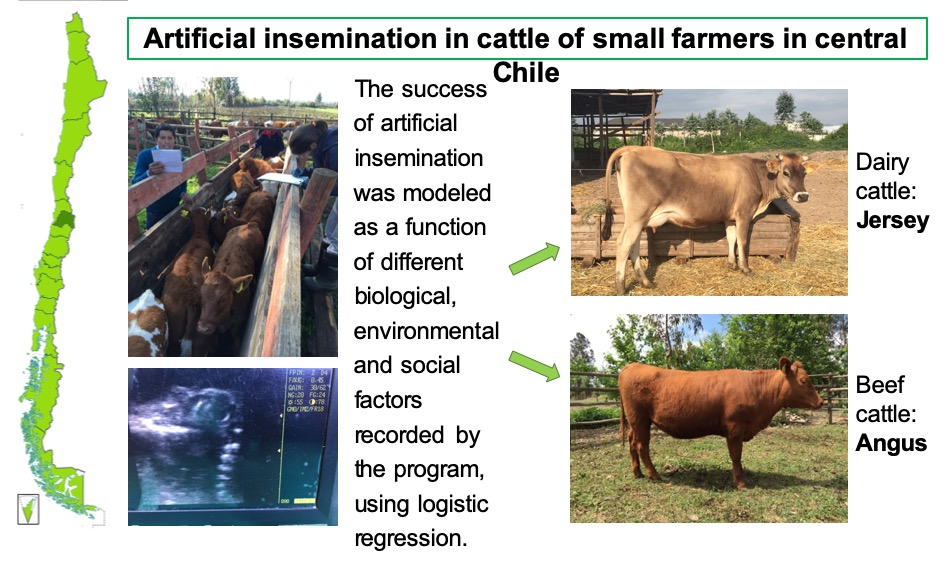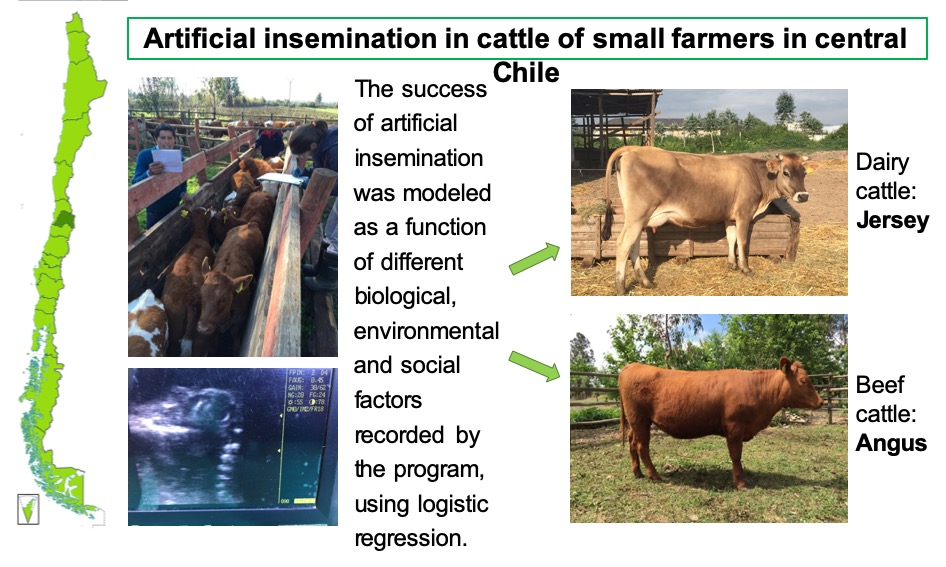Factors that affect the success of artificial insemination in cattle of small farmers in one region in Chile
Factors affecting artificial insemination in smallholder cattle in Chile
Keywords:
Animal improvement program, small-scale livestock farmers, reproductive technologies, South AmericaAbstract

This study analyzes different factors that affect the success of artificial insemination (AI) of cows of small farmers inserted in a program of productive and genetic improvement in one region in Chile. The success of AI was modeled as a function of different biological, environmental and social factors recorded by the program, using logistic regression. The outcome for this model was the gestational status of the inseminated cow, diagnosed by ultrasound as non-pregnant or pregnant. Predictors of interest were: smallholder's gender, province where the smallholder was located, smallholder's number of cows, inseminator's years of experience, insemination type (estrus detected or at fixed time), cow's age in years, cow's body condition, cow's ordinal number of births, cow's biotype (dairy or beef) and bull's biotype (dairy or beef). All predictors were evaluated for unconditional associations with the outcome (gestational status). When analyzing the results, the province, the number of cows the owner had, the experience of inseminators and the type of insemination were associated with the success of pregnancy. It is important to stimulate the implementation of these types of programs to help contribute to the improvement of the livelihood of small farmers who depend on low-input systems.
Highlights
- Program of Productive and Genetic Improvement of the Cattle of the O'Higgins Region in Central Chile
- Artificial insemination success modeled as a function of different biological, environmental, and social factors recorded by the program using logistic regression
- The model output was the gestational status of the inseminated cows as diagnosed by ultrasound.
- All predictors were evaluated for unconditional associations with the outcome.
- The province, the number of cows in the herd, the experience of the inseminators, and the type of insemination were associated with the success of the pregnancy.

Downloads
Published
Issue
Section
License
Aquellos autores/as que tengan publicaciones con esta revista, aceptan las Políticas Editoriales.


